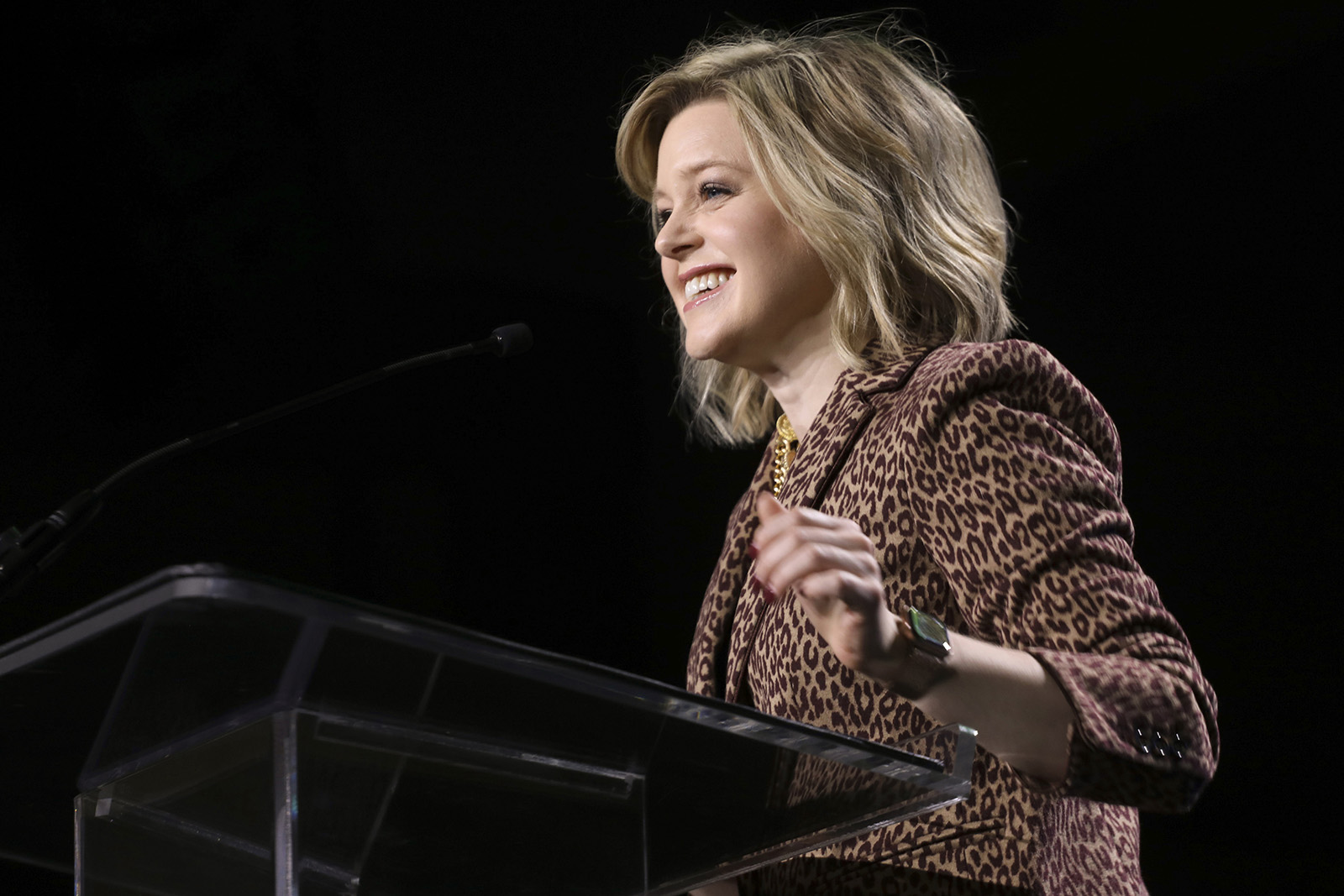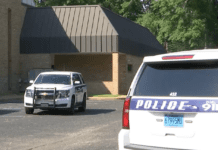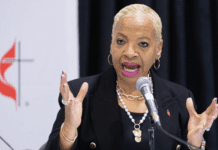
In this photo provided by Jerry Neil Williams of Texas Baptist, Katie McCoy leads prayer and reads Scripture as she begins the first worship session of the 2021 Texas Baptist Annual Meeting at the Galveston Island Convention Center in Galveston, Texas, on Nov. 16, 2021. (Texas Baptist via AP)
Called to ministry at 22, McCoy, who holds a doctorate in systematic theology, said her parents, professors and peers encouraged her to pursue leadership in Baptist life. Today, she is the new women’s ministry director for Texas Baptists, recently making the jump from an SBC seminary to the state convention.
Texas Baptist churches seemed to have worked out how to cooperate despite their differences over the role of women, and they do it “without the controversy — or perennial acrimony — the SBC experiences,” McCoy said. It is a local church matter and not a test issue for joining the state convention, she said.
“Many of our 5,300 churches are just as conservative as the SBC, affirming the same confessional documents,” McCoy said, adding that others allow women to preach or teach, but limit pastor and elder positions to men.
When McCoy previously worked at Southwestern Baptist Theological Seminary in Fort Worth, Texas, she said she felt valued by the administration and supported by President Adam Greenway but felt limited as an employee of an SBC seminary.
“I felt that, as a woman, I couldn’t grow beyond where I was,” McCoy said.
Despite her credentials, McCoy knew teaching in the School of Theology wasn’t an option. It would be, she said, “at best, fodder for the next alarmist documentary, and at worst, a call for investigations and resignations” at the SBC’s national gathering.
“If the SBC ever looks around and realizes it has lost a generation of women leaders, it won’t be because those women drifted into liberalism. It will be because they’re exhausted,” she said.
Instead, McCoy was named an assistant professor of applied theology and women’s studies, but in the School of Educational Ministries, which prepares students for church ministry more practically. She doesn’t fault Greenway.
“I do, however, fault a religious culture that so caters to its fundamentalist fringe that it views women teaching theology courses as a more imminent threat to its doctrinal purity than decades of infighting and rancor,” McCoy said.
Ashley Allen, a women’s ministry professor and the director of news and information at Southwestern seminary, does not feel restricted by the denomination’s beliefs.











